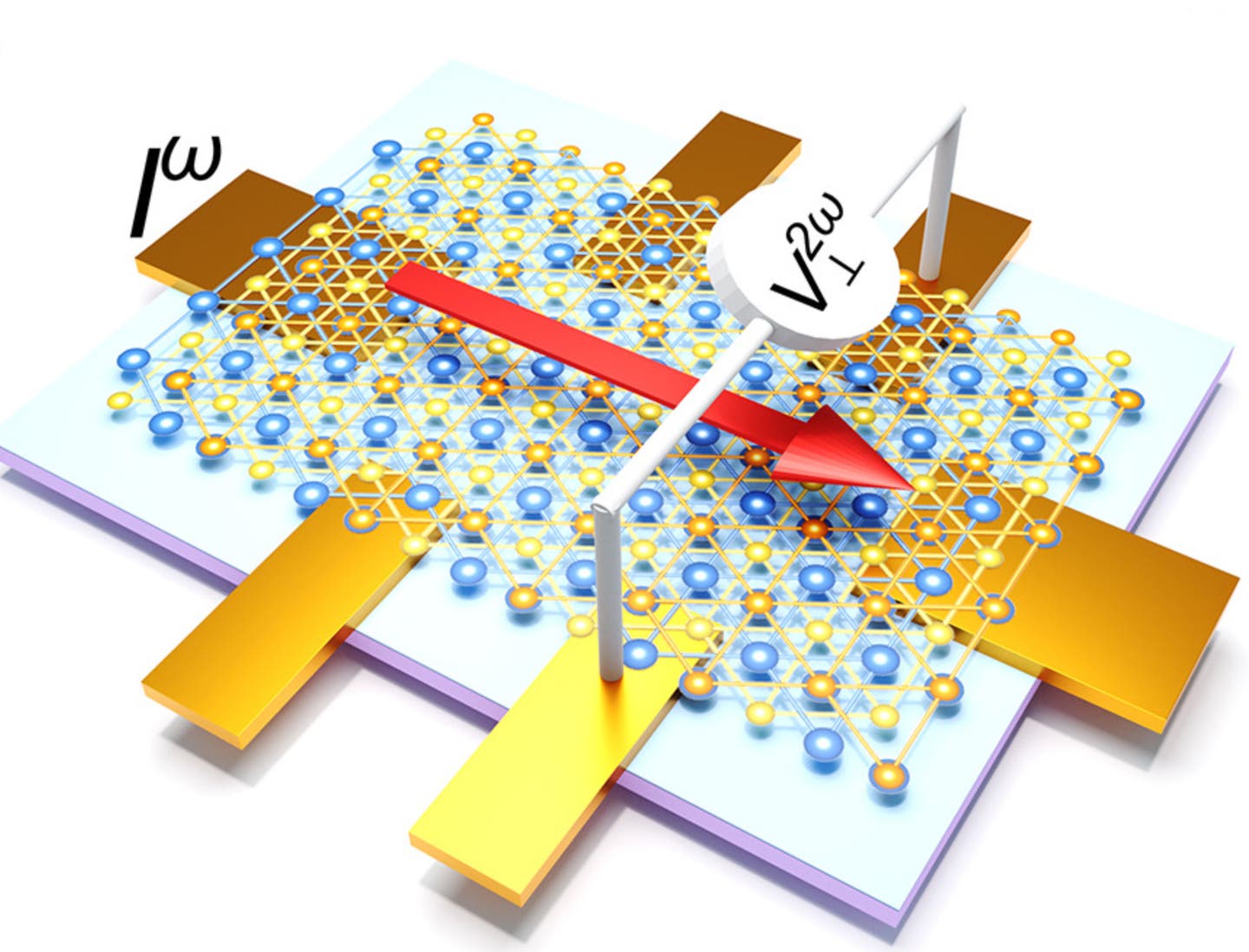FDA approved nasal spray relieves migraine symptoms in under 30 minutes
Zavzpret relieved migraine pain within 15 to 30 minutes after administration and lasted up to 48 hours in many patients.

[Mar. 10, 2023: JD Shavit, The Brighter Side of News]
Zavzpret relieved migraine pain within 15 to 30 minutes after administration and lasted up to 48 hours in many patients. (CREDIT: Creative Commons)
Pharmaceutical company Pfizer announced Friday that a nasal spray aimed at a fast treatment for migraines has been approved by the Food and Drug Administration. The drug is expected to provide relief to adults experiencing migraines with and without aura.
According to clinical trial data published in The Lancet Neurology in February, a 10mg dose of zavegepant (sold under the brand name Zavzpret) relieved migraine pain within 15 to 30 minutes after administration and lasted up to 48 hours in many patients. The nasal spray also proved to be more effective than a placebo to relieve pain and other migraine symptoms after two hours.
Dr. Kate Mullin, primary investigator on the zavegepant trial and associate medical director at the New England Institute for Neurology & Headache in Stamford, Connecticut, said that "Fifteen minutes is very quick, even for other nasal sprays". The Pfizer study showed that among the 1,405 people who participated in the trial between October 2020 and August 2021, about 24% of those who took the drug said they experienced pain freedom two hours after treatment compared to 15% of people in the placebo group.
Dr. Frederick Godley III, an otolaryngologist and president of the Association of Migraine Disorders, explained that it's not unusual for migraine trials to show high placebo rates. However, he believes that the Pfizer study still shows that with zavegepant, "you’re just doubling the chances that you’re going to get rid of your headache."
Related Stories:
The most common side effect of Zavzpret was a bad taste after administering the nasal spray, with about 21% of participants reporting odd or distorted tastes. Some people experienced hypersensitivity, including face swelling and hives, according to a Pfizer statement.
Angela Hwang, Pfizer's chief commercial officer, said in a statement that "The FDA approval of Zavzpret marks a significant breakthrough for people with migraine who need freedom from pain and prefer alternative options to oral medications."
Zavegepant, a gepant medication, is the first of its class of medications to come in nasal spray form. Gepants work by blocking calcitonin gene-related peptide receptors, which experts say causes intense inflammation and is associated with migraine pain.
Zolmitriptan is another nasal spray that treats the symptoms of migraine headaches, but it's a triptan medication. Triptans work by reducing inflammation and constricting blood vessels to stop a migraine. Due to this mechanism, health experts say triptans might not be safe for people with cardiovascular disease or high blood pressure.
As a nasal spray, Zavzpret may be a good choice for people who experience nausea during migraine attacks. (CREDIT: Pfizer)
Dr. Merle Diamond, a National Headache Foundation board member and managing director of the Diamond Headache Clinic at Saint Joseph Hospital in Chicago, said that "It’s an exciting addition to our toolbox that keeps getting bigger". She was not involved in the drug's development.
The National Headache Foundation defines a migraine as at least five headache attacks lasting four to 72 hours. According to health experts, episodic migraines are more common than chronic migraines and are characterized by having two to eight migraines per month rather than 15 days a month. Migraines can cause severe throbbing pain or a pulsing sensation usually on one side of the head and are often accompanied by nausea, vomiting, or sensitivity to light and sound.
A migraine occurs when excited brain cells trigger a nerve to release chemicals that irritate blood vessels and cause them to swell on the surface of the brain. Migraines most commonly occur in women ages 25 to 55. Fluctuations in estrogen before or during menstrual periods, pregnancy or menopause may trigger headaches.
A migraine attack can also be triggered by a change in sleep-wake cycle, missing or delaying a meal, medications Zavzpret's approval by the FDA is expected to provide relief for migraine sufferers who prefer a non-oral medication. Zavzpret is a convenient and effective option for those who have difficulty swallowing pills or who are nauseous during a migraine attack.
Pfizer has not yet disclosed the pricing for Zavzpret, but it is expected to be similar to the oral gepants currently available in the market. Gepants are a newer class of migraine medication and can be expensive, but Pfizer has stated that they are committed to making the drug accessible to those who need it.
The approval of Zavzpret is a significant milestone in the treatment of migraines, which affect over 37 million people in the United States. The approval also comes at a time when migraine sufferers have been struggling to access healthcare due to the COVID-19 pandemic.
Dr. Merle Diamond, a National Headache Foundation board member, expressed her excitement about the approval of Zavzpret, stating that it is an exciting addition to the toolkit of migraine specialists. She added that the drug is a welcome alternative for those who cannot tolerate oral medications.
Dr. Kate Mullin, the primary investigator on the zavegepant trial, stated that the nasal spray is a game-changer in the treatment of migraines. She praised the drug's quick action and its ability to provide relief within 15-30 minutes.
Dr. Frederick Godley III, the president of the Association of Migraine Disorders, pointed out that migraine sufferers often experience a high placebo effect in clinical trials. However, he stated that the Pfizer study shows that Zavzpret doubles the chances of getting rid of a migraine headache.
Zavzpret's approval by the FDA has also brought attention to the class of medications known as gepants. Gepants are a newer class of migraine medication that work by blocking the calcitonin gene-related peptide receptor. This receptor is associated with migraine pain and inflammation. While there are oral gepants available in the market, Zavzpret is the first nasal spray gepant medication.
Zolmitriptan is another nasal spray medication that treats the symptoms of migraine headaches. However, it is a triptan medication and works by reducing inflammation and constricting blood vessels to stop a migraine. Triptans may not be safe for people with cardiovascular disease or high blood pressure.
Migraines are a common neurological condition that can be debilitating and affect a person's quality of life. The approval of Zavzpret provides hope for those who suffer from migraines and offers an alternative to oral medications.
Migraines are characterized by a severe throbbing pain or pulsing sensation on one side of the head. They are often accompanied by nausea, vomiting, or sensitivity to light and sound. Migraines occur when excited brain cells trigger a nerve to release chemicals that irritate blood vessels and cause them to swell on the surface of the brain.
Migraines are more common in women aged 25 to 55, and hormonal fluctuations may trigger headaches. Migraine attacks can also be triggered by changes in sleep-wake cycles, missed meals, bright lights, stress, or underlying depression.
Some people experience migraines with aura, which is characterized by visual or sensory symptoms such as flickering lights or difficulty putting words together. The National Headache Foundation defines a migraine as at least five headache attacks lasting between four and 72 hours.
Zavzpret's approval by the FDA is a significant breakthrough for people with migraines who require fast and effective relief. The nasal spray is expected to be available in the market soon, and it provides hope for those who have been struggling to manage their migraines with traditional oral medications.
For more science and technology stories check out our New Discoveries section at The Brighter Side of News.
Note: Materials provided above by The Brighter Side of News. Content may be edited for style and length.
Like these kind of feel good stories? Get the Brighter Side of News' newsletter.



